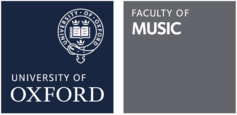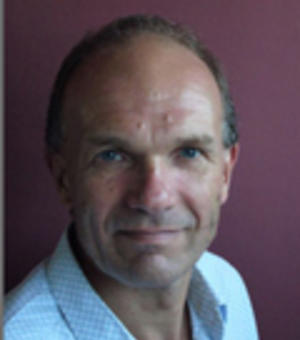Professor Eric Clarke
Eric Clarke went to the University of Sussex to read for a degree in neurobiology and graduated with a degree in music. After an MA in music, he was awarded a PhD in psychology from the University of Exeter, and became lecturer in music at City University in London in 1981. He was appointed as James Rossiter Hoyle Professor of Music at Sheffield in 1993, and took up the post of Heather Professor of Music at the University of Oxford in October 2007. Professor Clarke is an Associate Editor of the journals Music Perception and Musicae Scientiae, is on the editorial boards of Empirical Musicology Review, Radical Musicology, and Per Musi; and is a consulting editor for Psychology of Music. He was an Associate Director of the Arts and Humanities Research Council´s Research Centre for the History and Analysis of Recorded Music (CHARM) from 2004-2007, and of the AHRC Phase II Research Centre for Musical Performance as Creative Practice (CMPCP, 2009-2014)), was elected to membership of the Academia Europaea in 2009, and was made a Fellow of the British Academy in 2010.
Distributed Creativity: Collaboration and Improvisation in Contemporary Music. New York: Oxford University Press, 2017. (Co-editor with Mark Doffman)
Music and Consciousness. Philosophical, Psychological and Cultural Perspective. Oxford: Oxford University Press, 2011. (Co-editor with David Clarke)
Music and Mind in Everyday Life. Oxford: Oxford University Press, 2010. (Co-author with Nicola Dibben and Stephanie Pitts)
Creativity, collaboration and development in Jeremy Thurlow’s Ouija for Peter Sheppard Skærved. Journal of the Royal Musical Association,141 (2016), 113-165. (Co-author with Mark Doffman and Renee Timmers)
Music, empathy and cultural understanding. Physics of Life Reviews 15 (2015), 61-88. (Co-author with Tia DeNora and Jonna Vuoskoski)
Lost and found in music: music, consciousness and subjectivity. Musicae Scientiae 18 (2014), 354-368.
Music, Space and Subjectivity. In G. Born (Ed.) Music, Sound and Space: Transformations of Public and Private Experience Cambridge University Press, 2013, 90-110
What’s Going On: Music, Psychology and Ecological Theory. In M. Clayton, T. Herbert & R. Middleton (Eds.): The Cultural Study of Music: A Critical Introduction. Second Edition. Routledge, 2012, 333-342.
Click here for a full list of publications
RELATED WEBSITES
His research and teaching cover a number of areas within the psychology of music, music theory, and musical aesthetics/semiotics. He is the author of a monograph on listening (Ways of Listening. An Ecological Approach to the Perception of Musical Meaning OUP, 2005), co-author with former colleagues Nicola Dibben and Stephanie Pitts of Music and Mind in Everyday Life (OUP, 2010), co-editor with with David Clarke (Newcastle University) of Music and Consciousness (OUP, 2011), co-editor with colleagues from CHARM of the Cambridge Companion to Recorded Music (CUP, 2009), co-editor with CMPCP colleague Mark Doffman of Distributed Creativity (OUP, 2017). He has published widely in journal articles and book chapters on topics including expression in performance, the perception and production of rhythm, musical meaning, the relationships between music and language, the analysis of pop music, the history and aesthetics of recorded music, music and the body, music and consciousness/subjectivity, and music and empathy. Current projects include: Musical Subjectivities, a monograph based on lectures delivered at the British Library as the Royal Holloway-British Library Distinguished Lectures in Musicology; a second edited volume on Music and Consciousness (OUP); a five year AHRC research project (2016-21) on Transforming C19th Historically Informed Practice (PI Claire Holden).
He has supervised doctoral students on a wide variety of topics, including expression in performance, synaesthesia, the perception of electroacoustic music, perceptual theories of atonal music, the psychology of the recording studio, the perception of musical metre, music and consciousness, music and parapsychology, psychological processes in sight-reading, metaphors of embodiment in string playing, embodiment and pleasure in groove-based music, the dynamics of orchestral playing, music and awe, collaboration and intercultural engagement in contemporary music, and the perception of bass/base music.




